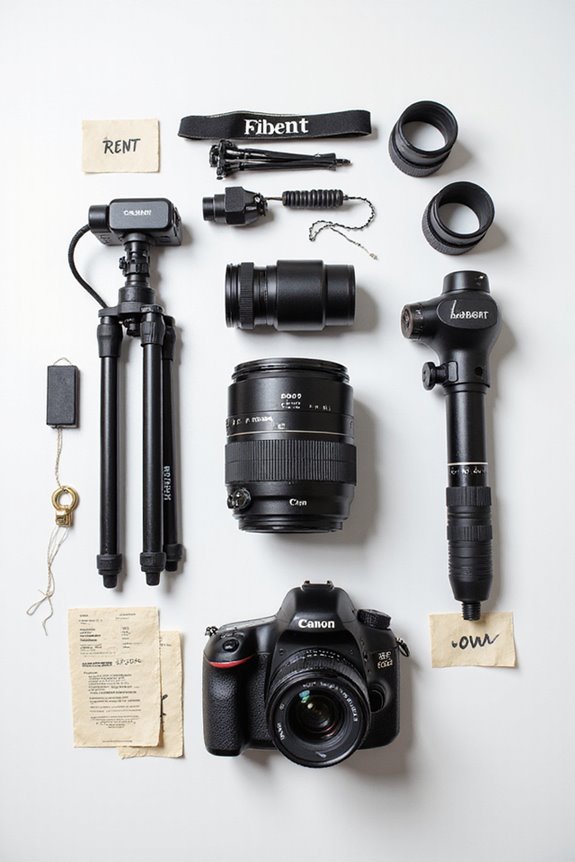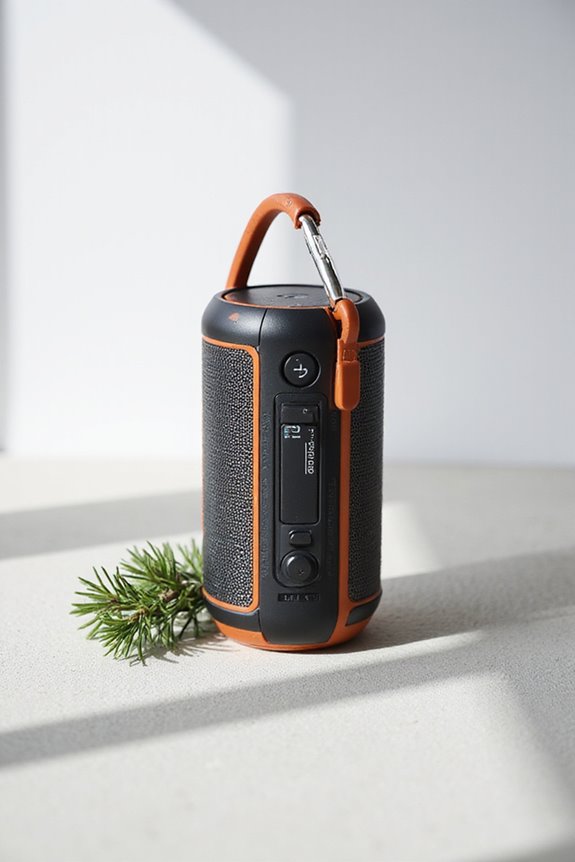When weighing the pros and cons of renting versus buying gear, it’s all about your needs. Renting can be budget-friendly, with predictable costs, plus you avoid storage headaches. You have access to the latest technology, which is a big win! However, buying might save you money if you use gear constantly; just keep in mind those maintenance costs. Both options have their perks and pitfalls, so stick around to explore what might work best for you!
Key Takeaways
- Renting offers lower upfront costs, making it easier for those on tight budgets to access high-tech gear.
- Buying gear can lead to long-term savings if used consistently, offsetting initial purchase costs.
- Renting provides access to the latest technology without the depreciation risks associated with ownership.
- Owners bear full responsibility for maintenance and liabilities, while renters enjoy minimal risk and fewer obligations.
- Renting eliminates storage challenges, allowing for flexible space management compared to purchasing equipment that requires significant storage.
Cost Flexibility of Renting Vs Buying
When it comes to the age-old debate of renting versus buying gear, the cost flexibility of each option can feel like a tightrope walk—one misstep, and the budget might just topple over. Renting shines with its predictable payments, offering businesses steady cash flow and lower upfront investment. This makes it a lifesaver for those with tighter budgets or short-term projects. Imagine needing a high-tech gadget for a seasonal gig; renting keeps the funds flowing without the weight of long-term financial commitment. On the flip side, buying can lead to long-term savings, especially if the gear is in constant use. However, the initial capital expenditure can be overwhelming, making renting an attractive alternative for many.
Access to New Technology
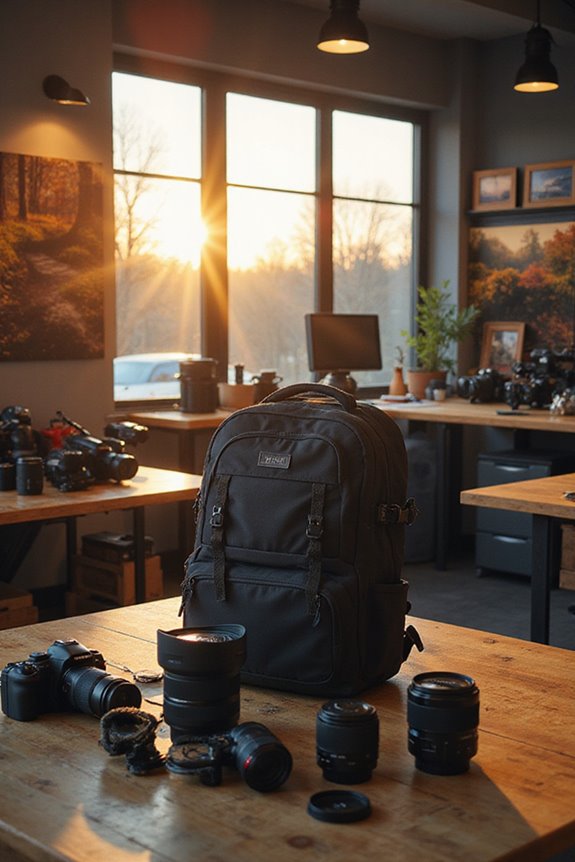
Renting gear doesn’t just ease financial strain; it opens the door to a world of cutting-edge technology that many might only dream of having. With rapid technology trends constantly emerging, rental options allow users to hop onto the latest innovations without breaking the bank. Imagine swapping out that bulky camera for the newest model with upgraded features, all while avoiding the dreaded depreciation hit that comes with buying. Plus, renting makes it easy to test new tech—think of it like trying on shoes before buying. You can assess performance, scale your usage, and even experiment with seasonal gear needs. By embracing rentals, individuals and businesses alike can stay ahead of the curve, ensuring they’re always equipped with the best tools available.
Liability and Maintenance Responsibilities

Steering the world of gear ownership can feel like walking a tightrope, especially when it comes to liability and maintenance responsibilities. For renters, the liability evaluations are often minimal; the rental company typically shoulders damage risks, limiting the renter’s exposure to just fair wear and tear. On the flip side, owning gear means full responsibility for any mishaps, and that can mean higher insurance costs. Maintenance obligations also differ—renters can breathe easy knowing repairs are handled by the rental company, while owners must budget for ongoing upkeep. Older equipment can turn into a money pit if not maintained properly. So, when weighing renting versus buying, it’s vital to reflect on how much risk and responsibility you’re willing to take on.
Storage Considerations
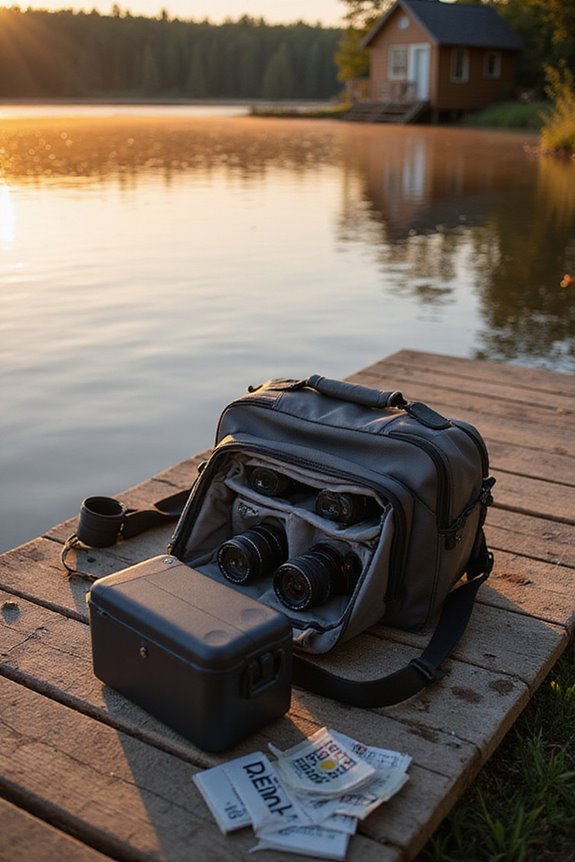
Storage considerations can feel like a game of Tetris, where every piece of equipment needs to fit just right. For those renting gear, it’s a breeze; rental companies handle storage logistics, freeing up valuable space for other business needs. This is especially handy for contractors juggling multiple job sites or facing limited storage options. Renting allows for flexible space management, adjusting equipment inventory without the burdensome long-term commitments that come with ownership. In contrast, buying equipment means investing in substantial storage facilities, which can quickly become a financial headache. Imagine the costs piling up just to keep that machinery safe! Renting keeps the focus on projects, not on storing equipment, making it a smart choice for many businesses.
Financial Implications of Ownership
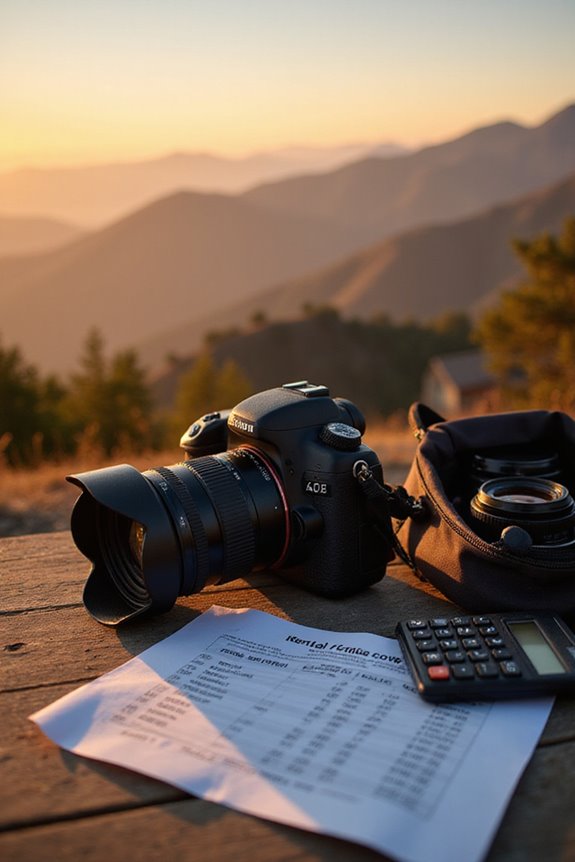
Owning equipment can feel like starting on a rollercoaster of financial highs and lows. The initial costs can be staggering, like shelling out $300,000 for a motor grader. Yet, there’s a silver lining: tax benefits come into play, with depreciation and interest deductions lightening the load. However, ownership brings maintenance responsibilities, which can turn into pesky costs over time. On the bright side, well-maintained equipment may appreciate, offering potential resale value that feels like finding cash in a jacket pocket. In the long run, owning can lead to cost efficiency, eliminating those pesky rental fees. So, while the thrill of ownership has its ups and downs, the financial implications can be quite rewarding when navigated carefully.
Utilization Rates and Project Needs
When it comes to the choice between renting and buying equipment, one of the key factors to contemplate is how often that equipment will actually be in use. Utilizing those equipment metrics is essential, especially when project fluctuations come into play. For instance, a contractor might need a specialized tool for just one week—why buy when renting offers flexibility? Renting allows businesses to adapt quickly to varying demands without the weight of long-term commitment or maintenance costs. Plus, if equipment sits idle, it’s not just a waste of space; it’s money down the drain. So, for those facing unpredictable projects, renting can be a savvy choice, ensuring that every dollar spent directly contributes to the task at hand.
Impact of Project Downtime
Downtime can feel like a black hole, sucking away time and money from any project. For equipment owners, the stakes are even higher. When machinery breaks down, downtime costs can skyrocket, leading to operational delays and missed deadlines. Owners bear the burden of maintenance, which can turn into a costly and time-consuming affair. Imagine waiting weeks for a part while a project stalls—frustrating, right? Unlike renters, who can quickly swap out faulty gear, owners often find themselves with limited options. Plus, owned equipment depreciates over time, impacting resale value. With downtime looming large, the choice between renting and owning becomes clearer: flexibility in rentals can be a lifesaver, keeping projects on track and budgets intact.
Business Operations and Scalability
In the fast-paced world of business, scalability often feels like juggling while riding a unicycle—exciting, but precarious. Renting gear can be a game-changer for operational agility, allowing companies to scale their equipment needs quickly without the burden of ownership. This flexibility supports seasonal demands, letting businesses adjust capacity with ease. However, rental agreements may limit customization, which can stifle some scalability strategies. On the flip side, owning equipment guarantees immediate availability for consistent demands, but it ties up capital and complicates maintenance. For many, a balanced approach works best: renting for short-term needs while owning core, high-use gear. Ultimately, the right choice can propel growth, turning that unicycle into a well-oiled machine!
Frequently Asked Questions
How Do Rental Agreements Typically Work for Equipment?
Approximately 70% of businesses utilize rental agreements for equipment. These contracts specify rental duration, outline equipment maintenance responsibilities, and include terms for liability, payment, and conditions for return to guarantee clarity and protection for both parties.
What Types of Equipment Are Most Commonly Rented?
Commonly rented equipment includes camera lenses, which cater to photographers’ needs, and power tools, essential for construction projects. These rentals support flexibility, allowing users access to specialized tools without long-term investment commitments.
Can Renting Affect My Insurance Premiums?
Investigating the theory reveals that renting can indeed affect insurance premiums. Increased rental liability exposure often necessitates specialized insurance coverage, which may lead to higher premiums, especially for high-value equipment or frequent rentals.
Are There Hidden Fees Associated With Renting Equipment?
Hidden fees considerably impact rental costs, complicating budget forecasts. Charges for equipment maintenance, insurance, and delivery can inflate expenses unexpectedly, emphasizing the importance of transparency and clear communication with rental companies to avoid financial surprises.
How Can I Determine the Best Rental Company?
Determining the best rental company requires thorough investigation. Examining rental company reviews and evaluating customer service responsiveness can reveal important insights, ensuring clients choose a provider that meets their needs and expectations effectively.

